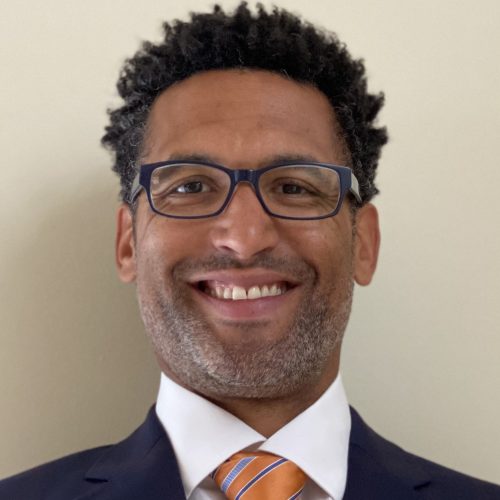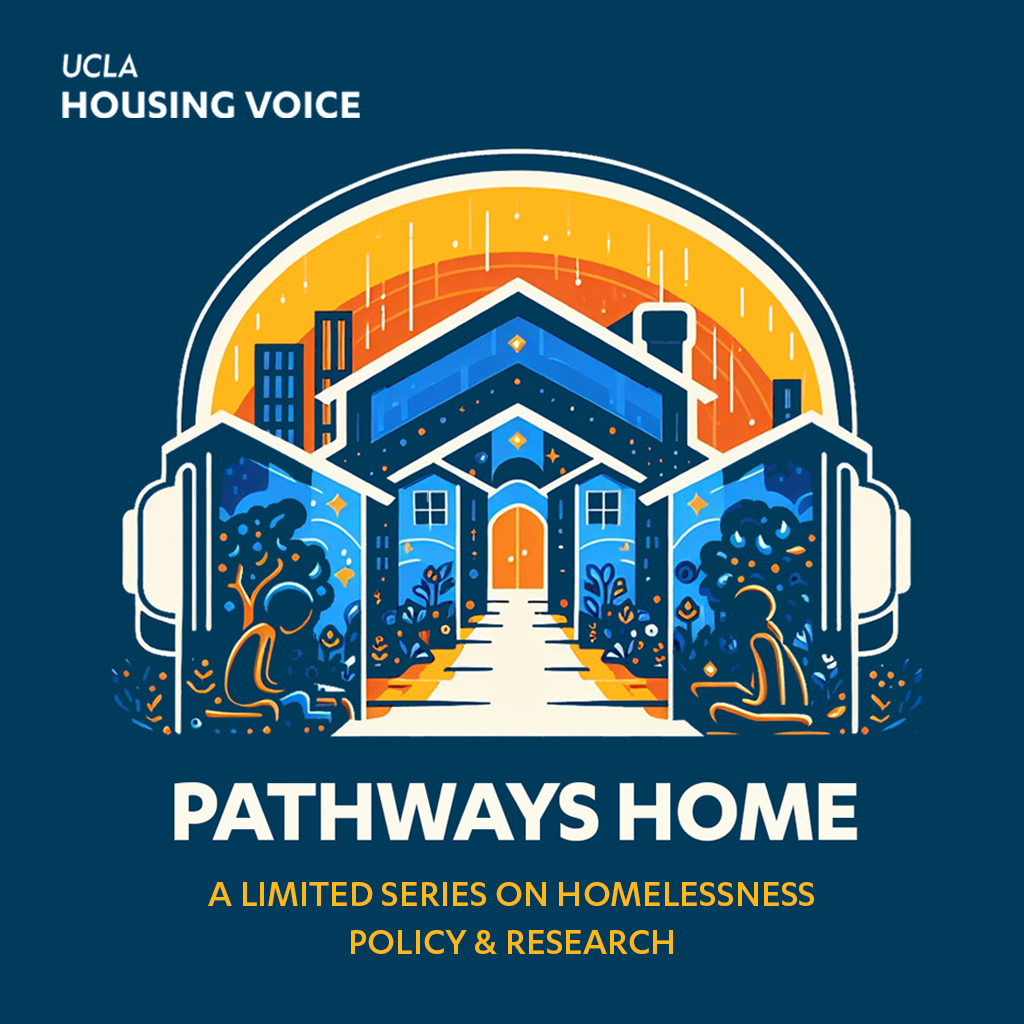About the Podcast
UCLA Housing Voice is a podcast hosted by UCLA Lewis Center’s Shane Phillips, housing initiative manager, and co-hosted alternately by professors Mike Lens, Mike Manville, and Paavo Monkkonen. Research on housing affordability, displacement, development and policy is a fast-moving field, with important implications for policy and people. But research findings don’t often get shared with those beyond academia. In every episode, our hosts talk to a different housing researcher to help make sense of their work and how it can be applied in the real world.
Meet the Hosts

Shane Phillips

Michael Lens

Paavo Monkkonen

Michael Manville
Episode Summaries and Show Notes
Episode 106: Mortgage Lending Standards with Kevin Erdmann (Incentives Series pt. 8)
Was the housing market really oversupplied in the mid-2000s? Kevin Erdmann says no, and he explains how this misunderstanding is at the root of present-day affordability problems. This is part 8 of our series on misaligned incentives in housing policy.
Episode 105: Shane Talks Housing on Lusk Perspectives
Shane makes a guest appearance on USC's Lusk Perspectives to talk state housing law, barriers to missing middle housing and condos, managing transportation systems in densifying cities, building wealth for tenants, and more.
Episode 104: Why We Don’t Build Condos with Muhammad Alameldin (Incentives Series pt. 7)
Why do many U.S. states build so few condos? Muhammad Alameldin explains the role of construction defect liability laws — and how to fix them. This is part 7 of our series on misaligned incentives in housing policy.
Episode 103: Fire Safety in Multifamily Housing with Alex Horowitz (Incentives Series pt. 6)
In which types of homes are people safest from fires? Alex Horowitz shares research showing that multifamily is safer than single-family housing, newer homes are much safer than older homes, and that a single stairwell’s just as good as two. This is part 6 of our series on misaligned incentives in housing policy.
Episode 102: Minimum Standards vs. Affordability with Benjamin Schneider (Incentives Series pt. 5)
We’ve been grappling with trade-offs between stricter building codes and declining affordability for over 100 years. Benjamin Schneider helps us trace the history. This is part 5 of our series on misaligned incentives in housing policy.
Episode 101: Beyond Zoning with John Zeanah and Andre D. Jones (Incentives Series pt. 4)
Your city just legalized “missing middle” housing in its zoning code… now what? With Memphis, Tennessee, as a case study, John Zeanah and Andre D. Jones discuss the hidden non-zoning barriers to developing small apartment buildings — and how to lower them. This is part 4 of our series on misaligned incentives in housing policy.
Episode 100: The Big 100!! Listener Questions, (Re-)Meet the Hosts, and Book Club
The hosts gather to celebrate the 100th episode of UCLA Housing Voice. We also answer listener questions and announce the first book for our book club.
Episode 99: The ‘International’ Code Council with Jesse Zwick (Incentives Series pt. 3)
North American buildings are built different — literally. The Santa Monica councilmember explains how the ICC is built to fail, and how to do better. This is part 3 of our series on misaligned incentives in housing policy.
Episode 98: Elevators with Stephen Smith (Incentives Series pt. 2)
Elevators in the U.S. and Canada cost 3–5 times as much as elevators in other high-income countries. Stephen Smith explains why, and how our well-intentioned elevator standards make cities less safe and accessible. This is part 2 of our series on misaligned incentives in housing policy.
Episode 97: Single-Stair Buildings and Eco-Districts with Michael Eliason (Incentives Series pt. 1)
We're joined by Michael Eliason to discuss his recent book, Building for People, with a focus on single-stair building code reform and eco-district redevelopment. This is part 1 of our series on misaligned incentives in housing policy.
Episode 96: Direct-to-Tenant Rent Assistance with Vincent Reina
Vincent Reina, a professor in the Department of City and Regional Planning at the University of Pennsylvania, discusses his recent research on a new pilot program giving tenants direct cash assistance rather than a regular housing voucher.
A few announcements!
We're asking for listener questions to celebrate our 100th episode(!!) and ideas for a Housing Voice book club. Send 'em to shanephillips@ucla.edu.




